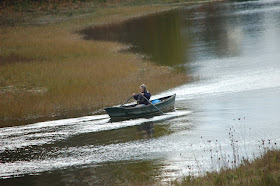The Real McCoy: Good Intentions Cannot Overrule Client’s Instructions | Legal Ethics in Motion
POSTED BY ALICE KERR ON OCT 12, 2018 IN ATTORNEY-CLIENT RELATIONSHIP
Update: The matter of McCoy v. Louisiana first appeared on this blog on October 17, 2017. The United States Supreme Court granted certiorari to decide whether a criminal defense attorney is constitutionally permitted to concede his or her client’s guilt over the defendant’s objections.
Robert McCoy was charged with three counts of first-degree murder and pleaded not guilty. McCoy’s parents hired Larry English to take over the case after McCoy had his assigned counsel removed. English concluded that the evidence against McCoy was overwhelming and the best strategy for avoiding the death penalty would be to admit guilt at trial and plead mental incapacity at sentencing. McCoy insisted on his innocence and objected to any admission of guilt. Two days before trial, McCoy petitioned the court to terminate English’s representation. English also supported this request. However, the trial court refused McCoy’s request.
At the guilt phase of the trial, English told the jury that McCoy “committed [the] three murders.” McCoy then testified in his own defense. The jury found McCoy guilty on all three counts. During the penalty phase, English again conceded that McCoy committed the crimes, but asked for mercy given McCoy’s mental and emotional issues. The jury returned three death verdicts. The Louisiana Supreme Court, upheld McCoy’s conviction and sentence. The Louisiana Supreme Court concluded that English had the authority to concede guilt as a trial strategy. The Louisiana Supreme Court upheld English’s conduct by relying on the Louisiana Rules of Professional Conduct Rule 1.2(d), which states, “a lawyer shall not. . . assist a client, in conduct that the lawyer knows is criminal or fraudulent.” The LA Supreme Court opined that had English presented McCoy’s alibi defense, English could be implicated in perjury, given English’s disbelief in McCoy’s alibi.
In a 6-3 decision, the United States Supreme Court reversed the Louisiana Supreme Court’s ruling and held that McCoy’s Sixth Amendment rights were violated. The decision discussed the allocation of authority in the lawyer-client relationship, considering two points: (1) who has the ultimate authority to decide the objectives of representation, and (2) who has the authority to decide how to carry out those objectives? The SCOTUS decision echoes Louisiana RPC Rule 1.2 (a), which states that a lawyer “shall abide by the client’s decisions concerning the objectives of representation” and provides that “in a criminal case, a lawyer shall abide by the client’s decision, after consultation with the lawyer, as to a plea to be entered, whether to waive jury trial and whether the client will testify.”
Ultimately, the defendant has the right to choose the objective of his defense. The lawyer then crafts the strategy around how to best achieve that objective. Thus, McCoy had the right to maintain his innocence, have his case presented, and let the jury decide. English, irrespective of his good intentions, foreclosed that right by controlling every aspect of the case to the detriment of his client’s objectives.
Read the United States Supreme Court decision here.






















































